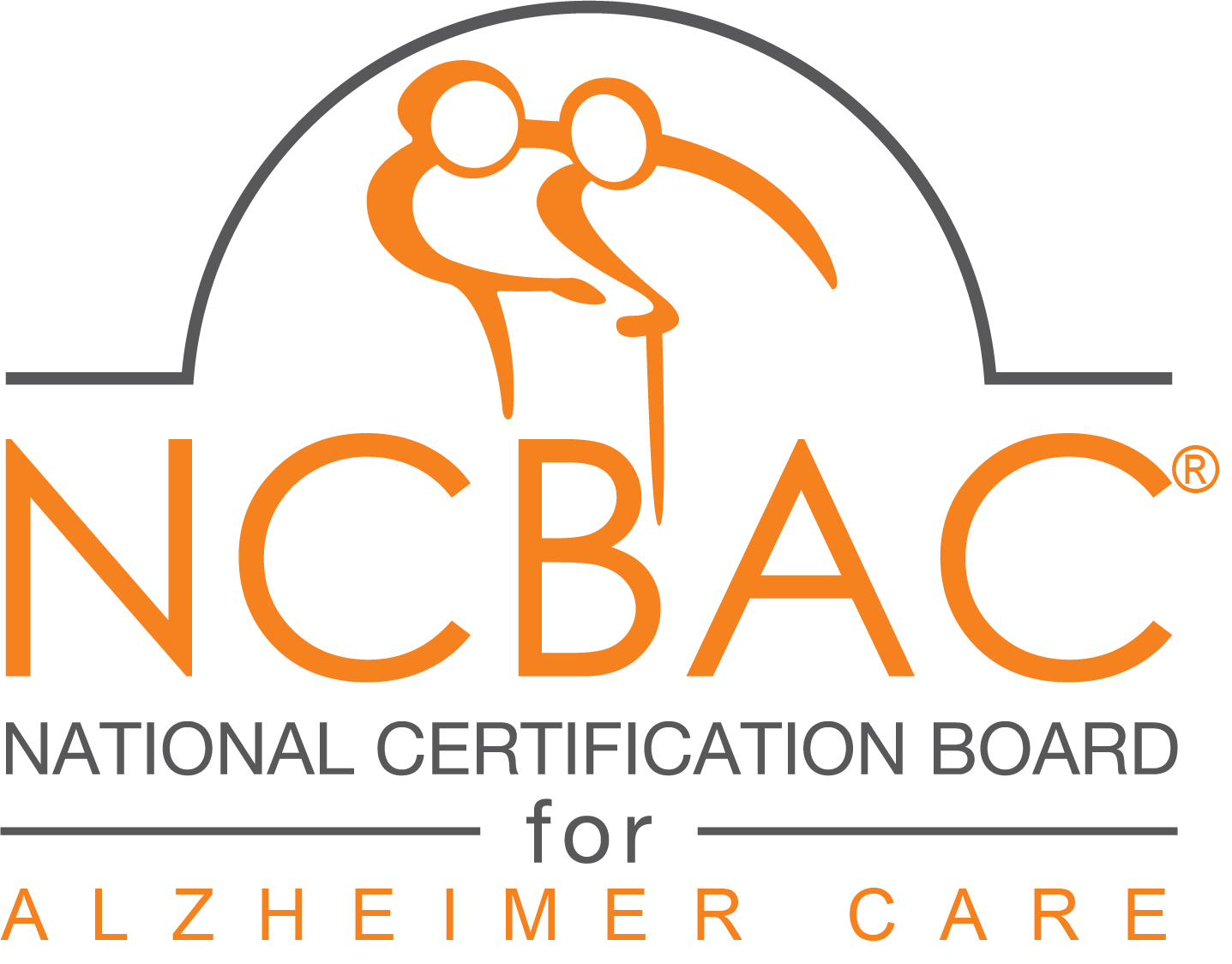The National Certification Board for Alzheimer & Aging Care (NCBAC™) announces recognition program for National Association of Health Care Assistants (NAHCA) members. NAHCA members are now entitled to special rates for Certified Alzheimer Caregiver (CAC™) and Certified Alzheimer Educator (CAEd™) certification examinations.
NCBAC™ Certifications Included in New Jersey’s Industry Valued Credential List – A Key Workforce Development Effort
The National Certification Board for Alzheimer and Aging Care has a mission to provide quality training and certification for those caring for the country's aging population. Two key elements of their program are to offer true certifications for Alzheimer Educators (CAEs™) and Alzheimer Caregivers (CAC™). The certifications are developed through an extensive process that begins with gathering detailed data about the actual work being performed by caregivers. The real-life data is used to benchmark core competencies and knowledge from current caregivers and related professionals working in dementia care. This is the same process used to develop certifications for doctors and nurses throughout the US.
How Is Caring for Men Different?
When it comes to helping aging parents, there can be many differences in how you can and should approach Dad vs. Mom from the get go. Caring for your father or husband or uncle or grandfather or brother can require unique communication choices and understanding of their needs.
Alzheimer's Mortality Increasing, But So Is At-Home Care
As more baby boomers age, deaths from Alzheimer's disease have risen 54.5%, and in many cases the heavy burden of caregiving has fallen on loved ones, according to research published in the US Centers for Disease Control and Prevention's Morbidity and Mortality Weekly Report.
This May Be the Reason Why Alzheimer's Patients Lose their Memory
Alzheimer's, a type of dementia, is a progressive disease that affects a person's memory and other important functions which are destroyed over time. It usually affects people over the age of 65 and memory loss is one of the most characteristic symptoms of the disease. But do you know why? A new study, published in the journal Neurology, reveals the reason. According to researchers, an alteration or change in the genes may hasten the process of memory loss and affect the thinking ability in people who are already at the risk of developing Alzheimer's.
Alzheimer’s Diagnosis Rarely Disclosed to Patients
A report released by the Alzheimer’s Association found that only 45% of people with Alzheimer’s disease had been told of their diagnosis. While many doctors may be trying to protect their patients from the devastating diagnosis, their non-disclosure is more harmful than good.
Simple steps to help people with dementia lead better lives
Alzheimer's disease has an unusual distinction: It's the illness that Americans fear most -- more than cancer, stroke or heart disease.
The rhetoric surrounding Alzheimer's reflects this. People "fade away" and are tragically "robbed of their identities" as this incurable condition progresses, we're told time and again.
We Know How To Curb Epidemics. Can Alzheimer’s Be Next?
I travel a lot, which means I spend much of my time in airports waiting to catch a flight. I use most of that time to work or catch up on email, but sometimes, when it’s really early in the morning or really late at night, I just sit at the gate and watch the people go by. And not too long ago I saw something that broke my heart.
The Science Of How Sleep Changes Your Brain, From Infancy To Old Age
The role of sleep changes with every stage of life, from infancy to old age. The latest neuroscience is discovering how crucial sleep is to an infant’s growing brain, while the latest epidemiology is discovering how irregular sleep doubles the risk of death as we grow older. To mark National Sleep Week, Thrive Global spoke with some of the top researchers in sleep science to give you a map of how sleep changes through your lifespan.
Sugary Drinks Tied to Accelerated Brain Aging
Drinking sugary beverages is associated with markers of accelerated aging and early signs of Alzheimer’s disease, a new study reports.
Researchers used data on more than 4,000 people over 30, examining their brains with M.R.I. and measuring memory with psychological tests. All completed well-validated food frequency questionnaires.
5 Ways to Help Patients with Dementia Enjoy Life
Alzheimer’s disease has an unusual distinction: It’s the illness that Americans fear most — more than cancer, stroke or heart disease.
The rhetoric surrounding Alzheimer’s reflects this. People “fade away” and are tragically “robbed of their identities” as this incurable condition progresses, we’re told time and again.
Family caregivers help with wider range of healthcare tasks than thought
A Yale-led study finds that while many family caregivers assist older adults with serious health problems like dementia and disability, the majority aid adults without those issues. Caregivers are also helping with a much wider range of activities than previously thought, said the researchers.
The findings, published April 20 in the Journal of the American Geriatrics Society, highlight the need for more attention and resources for family caregivers to lessen the significant financial, emotional, and physical burdens they bear, said the researchers.
